Timeline Of Anthony Edward Stark In The MCU


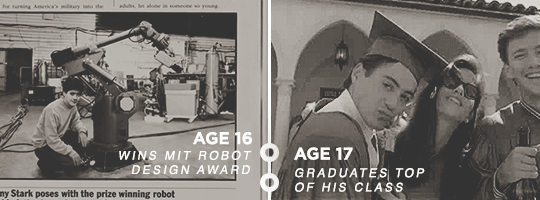





Timeline of Anthony Edward Stark in the MCU
Edited to fix dates
More Posts from Lanakeat-blog and Others
Things Programmers Shout #698
“Okay, well that’s still an error but at least it’s a different error.” // submitted by @freedominfantasy
¡Obi Juan! XD
Es como el chiste más viejo, pero sigue haciendo gracia.
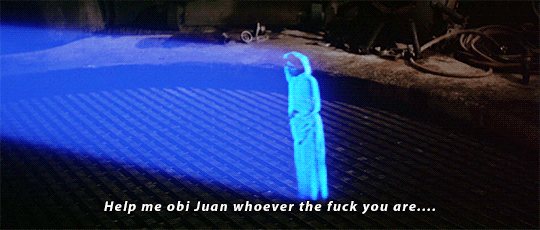
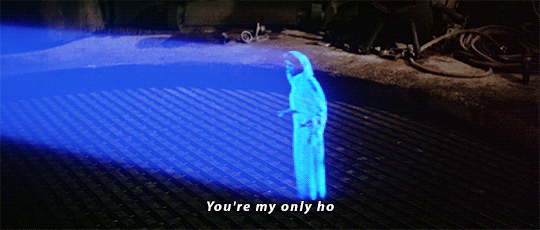
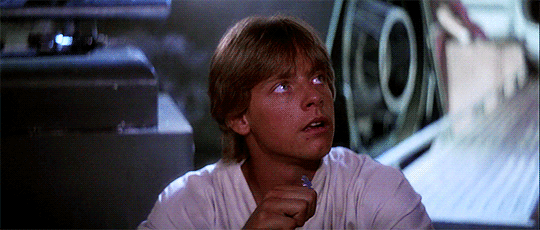
he’s our only ho bonus:


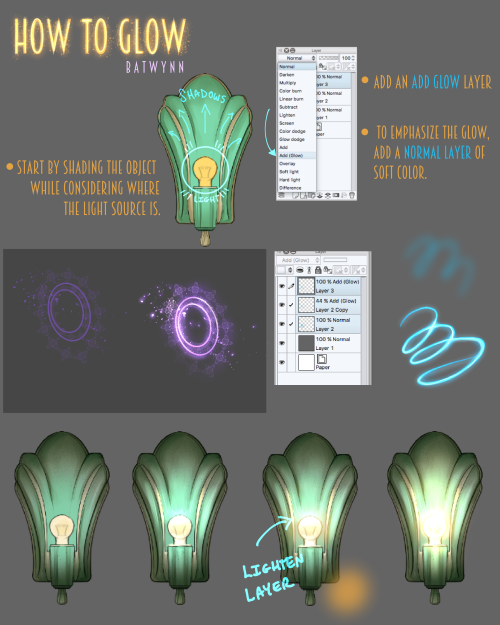
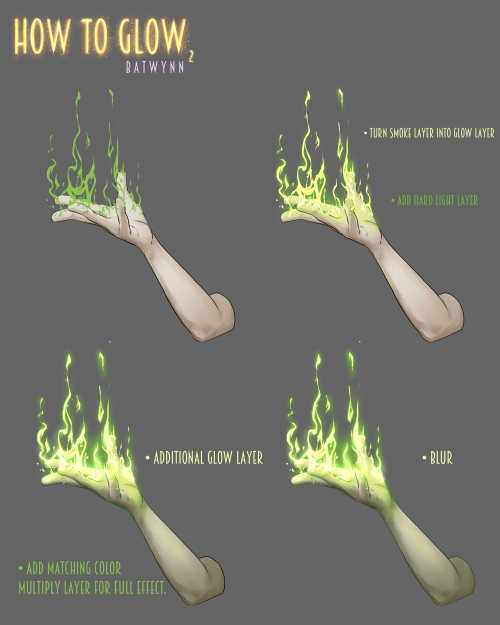
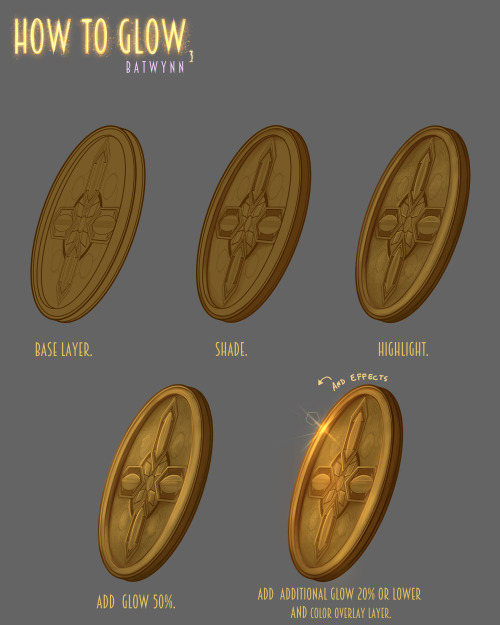
Someone asked how I do the glowy thing, soooo, here’s some how to do the glowy thing in Manga Studio. :3
For more tutorials, please check out my Patreon to help keep me funded.
Things Programmers Shout #677
“It works! No one touch it!” // submitted by @chickencordonblog
We Just Identified More Than 200 New (Potential) Planets
The Kepler space telescope is our first mission capable of identifying Earth-size planets around other stars. On Monday, June 19, 2017, scientists from many countries gathered at our Ames Research Center to talk about the latest results from the spacecraft, which include the identification of more than 200 potential new worlds! Here’s what you need to know:
We found 219 new planet candidates.

All of these worlds were found in a patch of sky near the Cygnus constellation in our Milky Way galaxy. Between 2009 and 2013, Kepler searched more than 200,000 stars in the region for orbiting planets. The 219 new planet candidates are part of the more than 4,000 planet candidates and 2,300 confirmed planets Kepler has identified to date.
Ten of these worlds are like our own.

Out of the 219 new planet candidates, 10 are possibly rocky, terrestrial worlds and orbit their star in the habitable zone – the range of distances from a star where liquid water could pool on the surface of a rocky planet.
Small planets come in two sizes.

Kepler has opened up our eyes to the existence of many small worlds. It turns out a lot of these planets are either approximately 1.5 times the size of Earth or just smaller than Neptune. The cool names given to planets of these sizes? Super Earths and mini-Neptunes.
Some of the new planets could be habitable.

Water is a key ingredient to life as we know it. Many of the new planet candidates are likely to have small rocky cores enveloped by a thick atmosphere of hydrogen and helium, and some are thought to be ocean worlds. That doesn’t necessarily mean the oceans of these planets are full of water, but we can dream, can’t we?
Other Earths are out there.

Kepler’s survey has made it possible for us to measure the number of Earth-size habitable zone planets in our galaxy. Determining how many planets like our own that exist is the big question we’ll explore next.
The hunt for new planets continues.

Kepler continues to search for planets in different regions of space. With the launch of our Transiting Exoplanet Survey Satellite (TESS) and the James Webb Space Telescope (JWST) in 2018, we’re going to search for planets nearest the sun and measure the composition of their atmospheres. In the mid-2020s, we have our sights on taking a picture of small planets like Earth with our Wide-Field Infrared Survey Telescope (WFIRST).
*All images of planets are artist illustrations.
Make sure to follow us on Tumblr for your regular dose of space: http://nasa.tumblr.com

if you’re ever feeling down, here is baby groot dancing :)
IN CASE PEGGY CARTER FANS WANT TO READ ABOUT LADY SPIES:
Or anyone else wants to, for that matter. Here are some places to start:
Vera Atkins
Nancy “White Mouse” Wake
Noor Inayat Khan
Violette Szabo
Eileen and Jacqueline Nearne
Yolande Beekman
Cecile Pearl Witherington
Krystyna Skarbek aka Christine Granville
Odette Sansom Hallowes
Lise de Baissac
Andree Borrel
Eliane Plewman
Madeleine Damerment
Diana Rowden
Vera Leigh
Just a few of the women who worked for the SOE, the OSS, and other organizations during WWII.
Many of their lives are short and tragic. Khan, Damerment, Plewman, and Beekman were executed at Dachau. Vera Leigh died in the Natzwiler-Struthof concentration camp alongside Rowden and Borrel. Christine Granville made it through the war, but was denied post-war field service opportunities, granted civil rather than military honors, refused naturalization papers by the British government, and was finally murdered by a stalker in 1952. Others lived full, long lives, adjusting to the world after the War as best they could, though the jobs they’d done so well were stripped away.
These are the heroes Peggy Carter was fashioned to represent. So, you know. Remember the real thing while supporting their fictional avatar.
This was one of my favourites...
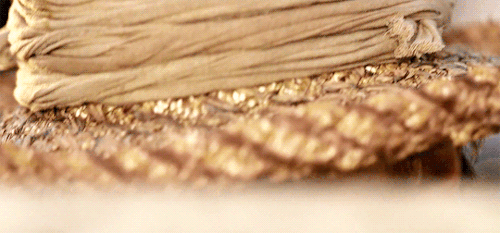








Vincent and the Doctor—S05E10
Hold my hand, Doctor. Try to see what I see. We are so lucky we are still alive to see this beautiful world. Look at the sky. It’s not dark and black and without character. The black is in fact deep blue. And over there, lighter blue. And blowing through the blueness and the blackness, the wind swirling through the air and then, shining, burning, bursting through, the stars. Can you see how they roar their light? Everywhere we look, the complex magic of nature blazes before our eyes.

Friendly reminder that this exists.

-
 heyitssmarvel liked this · 2 months ago
heyitssmarvel liked this · 2 months ago -
 mayablackwolf liked this · 3 months ago
mayablackwolf liked this · 3 months ago -
 gamelpar liked this · 4 months ago
gamelpar liked this · 4 months ago -
 sigelfire liked this · 5 months ago
sigelfire liked this · 5 months ago -
 ladymisteria reblogged this · 5 months ago
ladymisteria reblogged this · 5 months ago -
 in-umbra-gratia liked this · 1 year ago
in-umbra-gratia liked this · 1 year ago -
 softmusicbox reblogged this · 1 year ago
softmusicbox reblogged this · 1 year ago -
 ravarui liked this · 1 year ago
ravarui liked this · 1 year ago -
 istantonystark reblogged this · 1 year ago
istantonystark reblogged this · 1 year ago -
 mizie-izie liked this · 1 year ago
mizie-izie liked this · 1 year ago -
 haveyouseenthesky liked this · 1 year ago
haveyouseenthesky liked this · 1 year ago -
 beebeebeach liked this · 2 years ago
beebeebeach liked this · 2 years ago -
 heloisa2111 liked this · 2 years ago
heloisa2111 liked this · 2 years ago -
 garbagecrow12 liked this · 2 years ago
garbagecrow12 liked this · 2 years ago -
 ambrobal liked this · 2 years ago
ambrobal liked this · 2 years ago -
 iamabigpotato liked this · 2 years ago
iamabigpotato liked this · 2 years ago -
 duckystan reblogged this · 2 years ago
duckystan reblogged this · 2 years ago -
 irondadsworld liked this · 2 years ago
irondadsworld liked this · 2 years ago -
 everyone-needs-to-dream liked this · 3 years ago
everyone-needs-to-dream liked this · 3 years ago -
 stickyfoxconnoisseur liked this · 3 years ago
stickyfoxconnoisseur liked this · 3 years ago -
 greenblueasu liked this · 3 years ago
greenblueasu liked this · 3 years ago -
 basss221 liked this · 3 years ago
basss221 liked this · 3 years ago -
 arnostarkjr-aka-oct0ber123 liked this · 3 years ago
arnostarkjr-aka-oct0ber123 liked this · 3 years ago -
 mickeyluvs liked this · 3 years ago
mickeyluvs liked this · 3 years ago -
 epiiphxny liked this · 3 years ago
epiiphxny liked this · 3 years ago -
 riceycloveed reblogged this · 3 years ago
riceycloveed reblogged this · 3 years ago -
 iamabassistraccoon liked this · 3 years ago
iamabassistraccoon liked this · 3 years ago